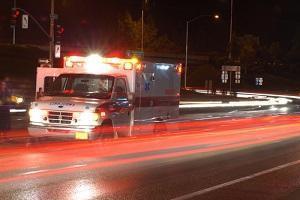Judge Rules Good Samaritan Law Does Not Apply to Ambulance Company
 In the state of Connecticut, the law offers a measure of protection to those who—voluntarily or in the scope of their employment—provide emergency medical assistance or first aid to a person in need. Known colloquially as a Good Samaritan law, the statute specifies that teachers, lifeguards, law enforcement officers, firefighters, and emergency medical services personnel may not be held liable for any injuries resulting from “acts or omissions” by the first-responder “which may constitute ordinary negligence.”
In the state of Connecticut, the law offers a measure of protection to those who—voluntarily or in the scope of their employment—provide emergency medical assistance or first aid to a person in need. Known colloquially as a Good Samaritan law, the statute specifies that teachers, lifeguards, law enforcement officers, firefighters, and emergency medical services personnel may not be held liable for any injuries resulting from “acts or omissions” by the first-responder “which may constitute ordinary negligence.”
The protection offered by the Good Samaritan law in Connecticut is generally considered to be broader than that provided by similar laws in other states. A recent decision by a New Haven Superior Court judge, however, determined that while the law may protect the individuals who provide first aid, it does not apply to all for-profit companies who employ first-responders.
General Background
The issues before the court were whether paramedic’s actions while treating a diabetic patient were negligent and, if so, was such negligence afforded immunity from liability under the Good Samaritan law. According to court records, an ambulance and emergency medical team was dispatched to the Bridgeport home of the plaintiff in June 2012. The plaintiff was suffering from a “diabetic crisis.” In treating the patient, one of the paramedics attempted to administer an intravenous dose of dextrose.
As the IV was being administered, the needle either dislodged from the patient’s vein or was never placed correctly, and the dextrose entered the “third space” between the patient’s vein. The patient was transported to a local hospital where he underwent emergency surgery as a result of the of dextrose entering his body improperly.
The Lawsuit
The man filed his lawsuit against the private ambulance company for which the paramedic worked, seeking damages for medical negligence. The ambulance company disputed the claim of negligence, but also maintained that even if negligence did occur, the Good Samaritan law offered immunity from liability. Judge Robin Wilson determined that based on the facts of the case, the paramedic was negligent and failed to meet the prevailing standard of medical care.
Without an existing precedent, she was also forced to decide whether the Good Samaritan law was intended to protect for-profit entities. Her analysis of the statute determined that individual emergency medical service workers were afforded immunity but that for-profit, non-governmental companies that employ them are not, unless identified specifically in the law. Private ambulance companies, therefore, are not afforded immunity from ordinary negligence. Since the lawsuit was filed against the company and not the individual paramedic, the judge found in favor of the plaintiff and awarded more than $720,000 in damages. The ambulance company has since filed an appeal.
Get the Help You Need
If you have been injured by the negligence or actions of another person or entity, an experienced Hartford personal injury attorney can provide valuable guidance. Call the Woolf & Ross Law Firm, LLC at 860-290-8690 for a free consultation today. We will work with you in getting the full compensation you deserve for your injuries.
Sources:
http://www.nasemso.org/legislation/Connecticut/ct52-557b.html
http://www.ctlawtribune.com/id=1202772843124/Ambulance-Company-to-Pay-722290-for-Gross-Willful-or-Wanton-Negligence
http://civilinquiry.jud.ct.gov/DocumentInquiry/DocumentInquiry.aspx?DocumentNo=11383263
http://civilinquiry.jud.ct.gov/CaseDetail/PublicCaseDetail.aspx?DocketNo=NNHCV146049824S






